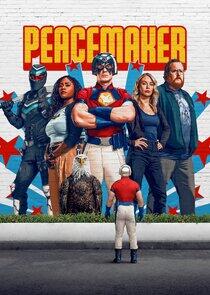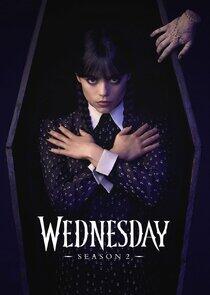Australia: An Unofficial History - Season 1

Season 1

Episodes

Cracks in the Facade
In the 1970s Australian governments under LNP Prime Ministers John Gorton and Billy McMahon relayed perfect images of the country to foreign nations.
Australia was a land of beaches, opportunities, aspiration and relaxation. The long-forgotten Commonwealth Film Unit, later known as Film Australia, was bestowed with the task of filming what amounted to propaganda. Public servants filmed a "portrait of Australia" seen on screens such as Expo '70 in Japan, with cameras in the hands of white males.
New SBS documentary Australia: An Unofficial History is but one perspective on the 1970s, drawing upon rarely seen clips from the Unit, made available by the National Film and Sound Archive, and narrated by Jacki Weaver.
Weaver was a rising star in the 1970s, winning her first Logie for a Nine telemovie Do I Have to Kill My Child? The subject about post-natal depression would be lucky to get a Nine commission in 2025, I suspect. Weaver recalls being proud of the 1976 film, funded by Film Australia and directed by Donald Crombie.
But early 1970s short films from the Commonwealth Film Unit were much different, with bikini clad girls on the beach turning mens' heads, and women in primary colours shopping for casserole pots. Australia. What's not to love?
Alternative perspectives were seen as fringe opinions but as the doco reveals, renegade filmmakers would begin to borrow the same equipment on weekends to tell the stories they wanted to tell.
Together with new movements in the community, railing against expectations, other voices began being heard.
This included First Nations protests, including the Aboriginal Tent Embassy in Canberra caught on film. Filmmaker Ian Dunlop went to Yolongu to invite elders to tell their story in a film on land rights.
There were protests about Australian involvement in the Vietnam War.
The Women's Liberation movement would begin to air views about abortion and domestic violence.
Gay Liberation would see activist Dennis Altman famously appearing on ABC's Monday Conference (ok it wasn't a Film Australia product).
By the time Gough Whitlam swept into power in 1972 on the back of the "It's Time" campaign, multiculturalism was the buzzword, with Al Grassby becoming Minister for Immigration and ending a White Australia policy. Under Whitlam, the government would also back the Arts and use Film Australia to create empathy around important social topics.
Looking back on these time capsule clips are a range of mostly Gen X and Gen Y commentators including Benjamin Law, Zoë Coombs Marr, Jan Fran and Leila Gurruwiwi. They can barely believe their eyes at the vision they are seeing, and who can blame them?
But there are also veterans who were there including filmmakers Rod Freeman and Deborah Kingsland, former CEO of Film Australia Bruce Moir, legendary activist Gary Foley, Women's Lib author Biff Ward, actor Rachael Maza, and iconic director Phillip Noyce while Historian Michelle Arrow also brings perspective to the narrative.
By the mid 1970s Australia was telling a more layered and more splintered version of who it was.
This begs the question, have we fulfilled the work of those early champions of social change, have we kept the flames brightly burning or gravitated to other concepts?
And heaven forbid, what will they think of the work produced now when they look back on us in 2075?

Between Hope and Reality
After two decades of conservative government, the early 1970s ushered in a period of social and cultural progress, with arts at the forefront of this transformation. The Government Film Unit, supported by generous government funding and now rebranded as Film Australia, was tasked with documenting the changing face of the nation.
The films made in these years were inspired by a desire to show Australians sharing their lives on screen in a new culture of acceptance and diversity. Cutting edge documentaries like Brad and Jenny sought to normalise homosexuality, years before it was decriminalised in most Australian states. These films' depictions of gay and lesbian people doing everyday things – eating, going out, catching a bus – presented a version of life unencumbered by stigma and shame. It was a vision of what society could become. But these explorations did come with hidden risks of vilification and fear for personal safety, threats that would eventually relegate the film Jenny to archival storage and away from public eyes.
A plethora of other films serve to highlight the tensions between the government's progressive aspirations and the public's embracement of change. A Voice To Be Heard brims with optimism as it tells the story of the Aboriginal Consultative Committee, the first time that Aboriginal people were elected to a body that could represent their interests in Federal Parliament. We see how that excitement was soon tarnished by the disappointment that no one was really listening.
Likewise, migrant stories like Migrant Women, Ford Riot, and Robin show a society that was not as inclusive, not as rewarding, and not as inviting as the Immigration Department's marketing had promised. Whitlam's dismissal in 1975 and Labor's subsequent landslide election loss suggested that social change might have been happening faster than many people were prepared for. Activists were worried that hard-won reforms might never be achieved again and many public servant filmmakers, fearing the same, were spurred on to make bold and boundary-pushing films – while they still could.

Rising Voices
In the second half of the 70's, Australian government filmmaking was on a high – so much so that an animated public information campaign won an Oscar! A wave of feminism was sweeping more women into workplaces, including the Film Australia studios. With women behind the camera, the portrayal of life in the suburbs changed, with films like All In The Same Boat and Do I Have To Kill My Child unveiling stories of Valium-suppressed discontent that were a far cry from earlier depictions of domestic bliss.
The Black Theatre movement was challenging cliches and stereotypes of Indigenous Australians. First Nations creatives increasingly embraced film as part of an activist's toolkit, often using humour, satire and ridicule as political weapons.
Gay activists trained their cameras on provocative content to nudge at complacency about representation and equity, explicitly inviting public conversations even through film titles themselves: Homosexuality – A Film For Discussion. And, when cameras were placed in the hands of civil and social right activists, they captured the misdeeds of the oppressors as much as the misfortunes of the oppressed.
As the influx of migrants continued to change the makeup of Australian society, there was growing interest in telling their stories on film. Initially, these were made by non-migrant filmmakers with a top-down approach. But as the decade wore on, migrant communities were becoming more confident to speak with their own voices, and the Government embraced the spirit of collaboration by establishing the Special Broadcasting Services, or SBS.
At the close of the 1970s a decade of intense change for Australia, the ‘official' vision of the country was much more colourful, complicated and diverse than it had been at the beginning, the vision of the country and the country itself had changed forever and laid the foundations for the Australia we experience today.
Recently Updated Shows

Invasion
Earth is visited by an alien species that threatens humanity's existence. Events unfold in real time through the eyes of five ordinary people across the globe as they struggle to make sense of the chaos unraveling around them.

Peacemaker
This James Gunn-created series continues the saga of Peacemaker, a vainglorious superhero/supervillain who believes in peace at any cost — no matter how many people he has to kill. After a miraculous recovery from his duel with Bloodsport, Peacemaker soon discovers that his freedom comes at a price.

48 Hours
48 Hours is a CBS news magazine that investigates intriguing crime and justice cases that touch on all aspects of the human experience. Over its long run, the show has helped exonerate wrongly convicted people, driven the reopening -- and resolution -- of cold cases, and changed numerous lives. CBS News correspondents offer an in-depth look into each story, with the emphasis on solving the mystery at its heart. The program and its team have earned critical acclaim, including 20 Emmys and three Peabody Awards.

Wednesday
Smart, sarcastic and a little dead inside, Wednesday Addams investigates a murder spree while making new friends — and foes — at Nevermore Academy.

Shifting Gears
Shifting Gears centers on Matt, a stubborn, widowed owner of a classic car restoration shop. When Matt's estranged daughter and her teenage kids move into his house, the real restoration begins.